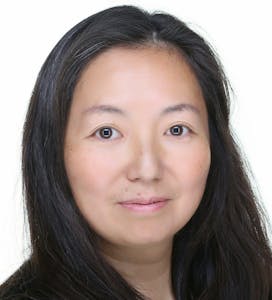
The fall of 2019 is set to be a troubling season for Yao Ming, chairman of the Chinese Basketball Association. First, he saw the premature defeat suffered by the Chinese national basketball team, whose Tokyo Olympics qualification was snatched off them in the same game, at the Fiba World Cup in China a month ago.
In addition to this, the Houston Rockets, the NBA team he played for between 2002 and 2011, and the NBA itself, for which Yao Ming has acted as a Chinese ambassador, have been rocked by the controversial tweet by Daryl Morey, general manager of the Rockets, in support of the ongoing pro-democracy protesters in Hong Kong, a special administrative zone of China.
This rift is nothing that an ambassador can easily smooth over. Chinese fans, as well as the government and the media, are angry, and have demanded official apologies from Morey and the NBA.
The NBA is now in a crisis, which hangs on how it weighs the business value in its Chinese basket against the risks of offending the Chinese or people at home. Adam Silver, commissioner of the NBA, gave his support to Morey’s freedom of speech, an important American value.
The situation has cast a shadow over the NBA China tour, which started on October 10 in Shanghai and moves on to Shenzhen, a new economic powerhouse in the south of China which borders Hong Kong. It is certain that Yao Ming will not go to the games.
In October 2004, the NBA tipped off its China pre-season tour in Beijing and Shanghai. The games coincided with the week-long holidays celebrating the Chinese National Day (October 1). Hundreds of millions of eyeballs were glued to TV screens.
The NBA China Games in October has since then been highly anticipated by Chinese fans as a festival – a success which results from a patient market entry and building strategy by the NBA.
The NBA debuted in China in 1985 with the NBA China Friendship Tour and China Central Television (CCTV) broadcast a selected number of games for free.
In more recent years, after the rise of Yao Ming and an increase in popularity of basketball in China as a whole, the NBA has been able to reap strong TV rights revenue from the market, from television and, even more lucratively, from internet streaming. This year, the NBA signed a $1.5bn, exclusive media-rights contract for five years with Tencent, one of the world’s biggest internet services companies.
The NBA’s merchandising, licensing and sponsorship revenues from China are estimated to be in the range of $150m-$200m annually.
This week, CCTV has blacked out all shows related to the NBA, including the tour, because of the controversy around the Morey tweet. Tencent has followed suit, suspending all streaming shows.
In addition to this, 11 out of 13 Chinese sponsors, which are among the NBA’s 25 official partners, have either withdrawn or suspended their sponsorship of the league.
NBA China also needs to deal with an internal crisis. It employs 200 people – mostly Chinese nationals. The company suggested that the NBA fire Morey and apologise to China, fearing that the league’s 30-year relationship with the country could be written off.
However, Adam Silver seems to consider the pressure from the Americans as more significant. “Not only have the Houston Rockets been abandoned by Chinese sponsors, the feeling is that NBA China has also been abandoned by the US headquarters,” says Wei Liu, a former employee who has discussed the issue with her anxious former colleagues.
It is naïve to believe that sports and politics have nothing to do with each other, when it is clear in the aftermath of Morey’s comments on Twitter that this is certainly not the case, at least not in China.
Former South African president Nelson Mandela once said that sport has the power to change the world. The NBA’s chief communications officer Mike Bass expressed the wish “that sports and NBA can be used as a unifying force to bridge cultural divides and bring people together”.
There is also an old saying in China that while water holds up the boat, water also sinks the boat. If the NBA is a boat, then China’s 300 million basketball fans are the waters that support her navigation. The NBA is currently sailing on troubled water in China.
For the NBA, and many other businesses who have a stake in the booming Chinese market, the lesson is that the more you reap in the harvest, they more values you have in the Chinese basket. It is wise to spread out the eggs. As for Yao Ming, chairman of the CBA, basketball has become a basket of troubles.